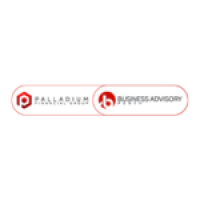How to Improve Your Cash Flow Management

Strong 8k brings an ultra-HD IPTV experience to your living room and your pocket.
Cash flow is the lifeblood of any business, especially for small enterprises that operate with tighter budgets and limited access to capital. Efficient small business cash flow management can be the difference between thriving and merely surviving. Without steady cash inflow, even profitable businesses can face difficulties in paying bills, suppliers, and employees on time.
This article will guide you through practical strategies to enhance your cash flow, ensuring the financial health and sustainability of your small business. Whether you're a startup or an established business owner, understanding the role of business accounting and leveraging professional bookkeeping services can make a significant impact.
Why Is Cash Flow Management So Important?
Before diving into improvement strategies, it’s crucial to understand why cash flow management is vital for small businesses:
- Maintains Operational Stability: Ensures you have enough cash to cover day-to-day expenses
- Avoids Debt Dependency: Prevents over-reliance on loans or credit.
- Supports Growth: Allows reinvestment into marketing, inventory, or staffing when the opportunity arises.
- Improves Financial Planning: Enables informed budgeting and forecasting.
In essence, cash flow is a real-time indicator of your business’s financial performance and liquidity.
1. Monitor and Forecast Your Cash Flow Regularly
Effective small business cash flow management starts with visibility. You must track your inflows and outflows consistently.
- Use business accounting software or work with professional bookkeeping services to maintain real-time financial data.
- Create weekly or monthly cash flow statements to project future cash positions.
- Consider seasonal fluctuations or upcoming large expenses in your forecasts.
Pro Tip: Use rolling 13-week cash flow forecasts to monitor your liquidity in the short term while planning for contingencies.
2. Accelerate Receivables
One of the most common cash flow issues in small businesses is late customer payments.
Strategies to Improve Receivables:
- Invoice Promptly: Send invoices as soon as a job is completed.
- Set Clear Payment Terms: Offer 7, 14, or 30-day terms, depending on your industry.
- Offer Early Payment Incentives: Provide small discounts for early payments.
- Follow Up Consistently: Automate reminders for due and overdue payments.
- Accept Multiple Payment Methods: Include credit card, bank transfer, and digital wallets.
Your bookkeeping service can help track outstanding invoices and follow up with customers regularly, reducing delays and disputes.
3. Control Your Payables Strategically
Just as you want to accelerate inflows, it’s important to optimize outflows.
Tips to Manage Payables:
- Take Full Advantage of Payment Terms: Don’t pay bills earlier than necessary unless discounts are offered.
- Negotiate Better Terms: Talk to suppliers about extending payment timelines or lowering minimum order quantities.
- Consolidate Payments: Pay vendors at scheduled intervals rather than sporadically.
Good business accounting practices ensure that you never miss a due date while maintaining a healthy cash buffer.
4. Cut Unnecessary Expenses
Regularly reviewing your expenses can uncover opportunities to free up cash.
- Audit Monthly Subscriptions: Cancel unused tools or services.
- Outsource Non-Core Functions: Hiring freelancers or outsourcing bookkeeping services may be more cost-effective than full-time employees.
- Lease Instead of Buy: Especially for equipment or software.
- Reduce Inventory Waste: Avoid overstocking by aligning inventory levels with demand forecasts.
Even small savings add up over time and improve overall small business cash flow management.
5. Improve Inventory Management
Inventory ties up valuable cash. Managing it efficiently can release capital back into your business.
Best Practices:
- Use Inventory Management Software: Sync your sales and inventory levels.
- Adopt Just-In-Time (JIT): Minimize holding costs by ordering based on immediate demand.
- Review Slow-Moving Stock: Offer discounts or bundles to clear out old inventory.
Integrating inventory control with bookkeeping services ensures accurate reflection in financial records and avoids surprises.
6. Create a Cash Reserve
Unpredictable expenses can disrupt cash flow. A cash reserve serves as your financial cushion.
- Aim for 3–6 months of operating expenses.
- Park this reserve in a high-interest business savings account.
- Replenish the reserve whenever profits allow.
This safety net helps weather unexpected downturns, repairs, or delayed receivables.
7. Use Financing Wisely
While it's best to rely on your own funds, strategic financing can support cash flow management when needed.
Financing Options:
- Line of Credit: Ideal for bridging temporary gaps.
- Invoice Factoring: Get cash advances on unpaid invoices.
- Short-Term Business Loans: Useful for one-time large purchases.
Make sure financing is used for growth or critical needs—not to cover chronic operational shortfalls.
8. Leverage Technology and Expertise
Digital tools and human expertise go hand-in-hand for successful cash flow management.
Tools:
- Xero, QuickBooks, MYOB: Great for business accounting and forecasting.
- Cash Flow Management Apps: Tools like Float or Pulse provide visual insights.
Expertise:
- Accountants: Offer financial analysis, tax planning, and cash flow advice.
- Bookkeeping Services: Keep your records up-to-date, accurate, and audit-ready.
Outsourcing these services ensures you focus on your core business while maintaining strong financial control.
9. Review Financial Reports Frequently
Your cash flow health depends on how closely you monitor your financial performance.
Essential Reports to Review:
- Cash Flow Statement: Understand your cash sources and uses.
- Profit & Loss Statement: Determine operational profitability.
- Balance Sheet: Assess financial position and working capital.
Discuss these reports regularly with your accountant or bookkeeper to make informed decisions.
10. Educate Your Team
Cash flow management is a company-wide effort. Employees should be aware of their impact on finances.
- Train sales teams on proper invoicing and collections protocols.
- Educate purchasing departments on cost control and supplier negotiations.
- Involve managers in budgeting and expense tracking.
- When everyone understands the importance of cash flow, collective decisions become more financially responsible.
Conclusion
Improving small business cash flow management requires a proactive, disciplined approach. From accelerating receivables to cutting unnecessary expenses, every small change contributes to stronger financial health. By leveraging bookkeeping services, modern business accounting tools, and expert advice, you can gain full control of your cash flow and set your business on a path to sustainable growth.
Note: IndiBlogHub features both user-submitted and editorial content. We do not verify third-party contributions. Read our Disclaimer and Privacy Policyfor details.


